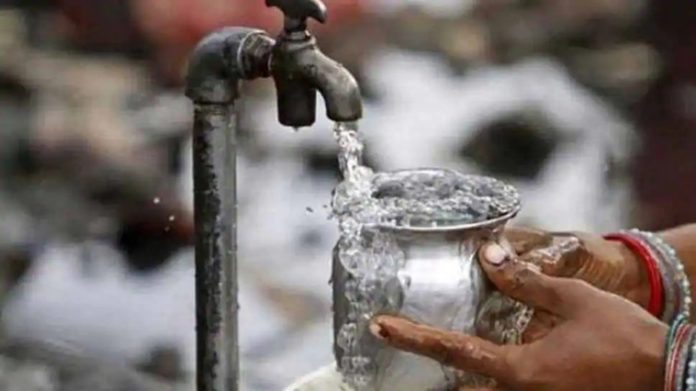New Delhi (NVI): As migrant labourers are returning to their villages amid the Covid-19 pandemic situation and have no immediate plans to go back to cities, the Centre is planning to deploy such workers in its flagship Jal Jeevan Mission (JJM) to provide them with employment.
“In the prevailing CoVid-19 pandemic situation, works related to water supply and water conservation to commence immediately in villages to provide works to the skilled/semi-skilled migrant workers to provide livelihood as well as to provide potable water in the households of rural people,” the Jal Shakti Ministry said in a statement.
The Mission aims to provide Functional Household Tap Connection (FHTC) i.e. Har Ghar Jal to every rural household by 2024.
JJM aims at ensuring potable water supply in adequate quantity (@ the rate of 55 litres per person per day) and of prescribed quality to every rural household on regular and long-term basis.
“Since the objective of the Mission is universal coverage, emphasis is laid on the principle of ‘equity and inclusiveness’ i.e. every family in the village gets tap water connection in their households and none is left behind,” the ministry said.
In addition to this, the provision of household tap connection in rural areas will help in removing ‘drudgery’ of women, especially girls as fetching water is their responsibility. It will also improve the ‘ease of living’ for people living in rural areas.
The Ministry further stated that safe access to potable water in household premises will not only improve the health of rural people in terms of control of water-borne diseases, it will also provide opportunity for economic activities for rural women by saving their precious time, which otherwise is lost in fetching water from a distance.
Under the mission, the government is focusing on ensuring functionality of water supply systems and more emphasis is given on ‘service delivery’ with the objective to convert PHED (Public health Engineering Department) and Gram Panchayat or User groups as ‘public utilities’, rather than merely creating water supply infrastructure, the ministry said.
The Jal Shakti Ministry further stated that to achieve the objectives of the Mission to provide tap connection to each rural household in every habitation/village on long-term basis, skilled manpower in areas like masonry, plumbing, fitting, electricity, etc., needed for creation of water supply schemes and their operation & maintenance and such manpower will be required in each village/habitation.
The Ministry has roped in National Skill Development Corporation to create a pool of skilled Human Resources in rural areas to make villages a self-reliant unit without depending on others for regular upkeep and maintenance of water supply systems.
With an outlay of Rs 3.60 lakh crore for the Mission, the Centre’s share is 2.08 Lakh Crore and the remaining Rs 1.52 Crore is to be borne by states. Announced on August 15, 2019 by the Prime Minister in his Independence Day address to the nation, in 2019-20, Rs. 10,000 Crore was allocated for JJM and during 2020-21, provision of Rs. 23,500 Crore has been made for the JJM.
The funding pattern under JJM is 100:0 for UTs without legislature; 90:10 for North-Eastern and Himalayan States, and UTs with legislature; and 50:50 for all other States. Further, to instill a sense of competition among the States, good performance, in terms of physical and financial progress, is incentivized in the form of additional fund, the Ministry said.








